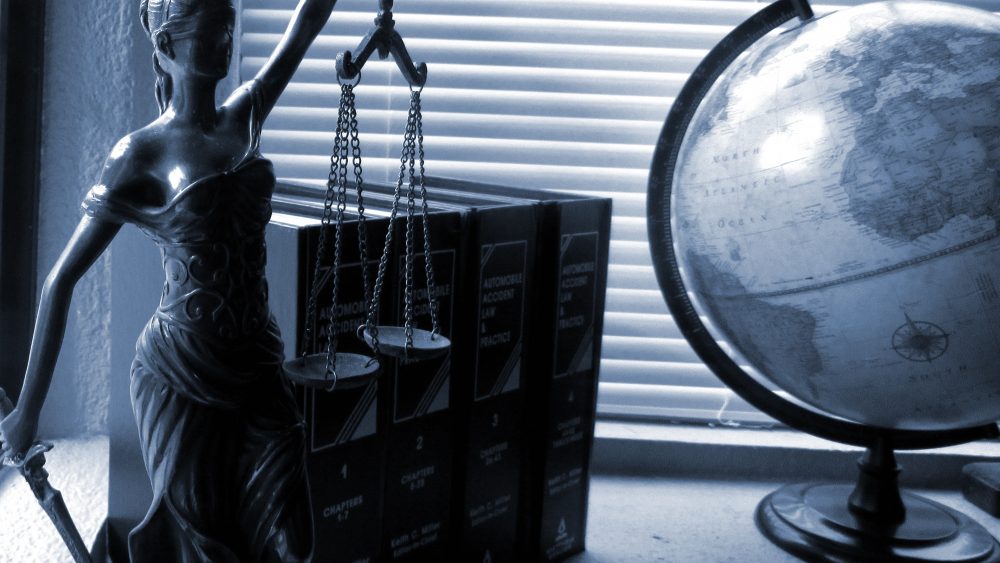Posted on 7 October 2020 by Soo-hyun Lee (Faculty of Law)
The views expressed in this publication are those of the authors and do not necessarily represent those of the Agenda 2030 Graduate School or Lund University. The present document is being issued without formal editing.
One of the main challenges in international economic law (IEL) has been in dealing with conflict between inconsistent objectives. For instance, at one end, the objective of IEL is to promote and facilitate economic interaction and integration. At the other end, many of the instruments and institutions at the centre of IEL identify the larger objective of contributing to commonly held objectives like sustainable development[1]. However, increased flows of trade, investment, and development finance may be accompanied by detrimental effects on the SDGs, such as increased economic inequality, indebtedness, or usage of skewed production-consumption throughputs. It is amidst this conundrum that the SDGs assume an important role in IEL accountability upgrading.
This inconsistency is arbitrated through international dispute settlement mechanisms. Governments reserve the authority to apply regulation, even if such measures may undermine the agreements made to trade or investment partners, whether they are other governments or transnational corporations. Exercising this right, however, must be on behalf of legitimate objectives, such as public health[2], or under the duress of extraordinary circumstances like financial crises[3]. The broad spectrum of legitimate objectives easily overlaps with SDG targets, making them normatively available options as grounds for exception to IEL obligations. Enter SDG accountability: there is a need for a reliable means to differentiate instances when states or transnational corporations take measures that actually advance sustainable development from those that are SDG-wrapped pleasantries[4].
An IEL dispute settlement institution is not an appropriate forum for attempting to assess the extent to which a government or corporate decision is sustainable. However, they are appropriate means to ensure that such assessments take place[5], which serve as the basis for determining the legitimacy of an objective. The rigour of those assessments to prevent abusive practices like SDG-wrapping become, in part, the accountability vanguard of the SDGs in IEL. SDG accountability must ensure that the crucial aspect of legitimate exceptions in IEL continues to serve its purpose as a safeguard rather than a loophole to ensure its continued relevance. Deciding when in the process of an IEL dispute and where in the body of IEL such SDG accountability is most tenable remains an ambitious project for institutions[6], multilateralism[7], and international economic agreements[8].
[1] The Agreement Establishing the World Trade Organization (“WTO Agreement”) states in its preamble the observation of the “objective of sustainable development” while seeking a “more integrated […] multilateral trading system”, which has been observed as an inconsistency between the process of trade liberalization and sustainable development, particularly in relation to trade-restrictive measures (Peter van den Bossche and Marie Denise Prévost, Essentials of WTO Law [CUP 2016] 83–84).
[2] Philip Morris Asia Ltd v. Australia, PCA Case No. 2012-12, Award on Jurisdiction and Admissibility (17 December 2015).
[3] LG&E Energy Corp., LG&E Capital Corp., and LG&E International, Inc.v. Argentine Republic, ICSID Case No. ARB/02/1, Decision on Liability (3 October 2006) ICSID Case No. ARB/02/1, Decision on Liability (3 October 2006).
[4] For a brief overview in connection to international portfolio investment, see Soo-hyun Lee, ‘The Need for Policy Integration in Responsible Investment and Environmental Justice’ (21 November 2019) <https://agenda2030.blogg.lu.se/the-need-for-policy-integration-in-responsible-investment-and-environmental-justice/> accessed 20 May 2020.
[5] The occurred involving a scientific review on environmental impact in Methanex v. United States, UNCITRAL (NAFTA), Final Award (3 August 2005).
[6] On the use of accountability mechanisms in regional development banks, for instance, see Domenico Pauciulo, ‘Remarks on the Practice of Regional Development Banks’ (RDBs) Accountability Mechanisms and the Safeguard of Human Rights’ in Giovanna Adinolfi and others (eds), International Economic Law: Contemporary Issues (Springer International Publishing 2017).
[7] The United Nations Commission on International Trade Law (UNCITRAL) is currently facilitating such negotiations (United Nations Commission on International Trade Law (UNCITRAL), ‘Working Group III: Investor-State Dispute Settlement Reform | United Nations Commission On International Trade Law’ [Working Groups] <https://uncitral.un.org/en/working_groups/3/investor-state> accessed 20 May 2020).
[8] The preamble of the CPTPP, for instance, identifies a reaffirmation of ‘the importance of promoting corporate social responsibility, cultural identity and diversity, environmental protection and conservation, gender equality, indigenous rights, labour rights, inclusive trade, sustainable development and traditional knowledge, as well as the importance of preserving their right to regulate in the public interest’ (Comprehensive and Progressive Agreement for Trans-Pacific Partnership (CPTPP) 2018 para vi).
This blog post is part of the series Accountability and the SDGs.
On 14 October at 17.00-18.30 we continue the discussion on this topic in a panel discussion, which is part of the Lund University Future Week.
Join the panel discussion on Accountability and the SDGs – via Facebook event.
The views expressed in this publication are those of the author’s and do not necessarily reflect the views of any institution.

